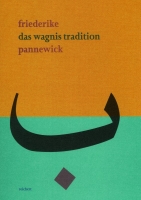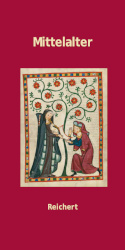Search
Das Wagnis Tradition
Arabische Wege der Theatralität
2000
17.0 x 24.0 cm, 336 p., hardback
ISBN: 9783895001857
17.0 x 24.0 cm, 336 p., hardback
42,00 €
ISBN: 9783895001857
Short Description
“There is no independent Arab theatre; the Arabs adopted this genre from Europe.” For a long time this was the predominant thesis in Europe and the Arab world. But what is theatre precisely? Does this concept have the same meaning in all cultures at all times? The author pursues these questions employing criteria developed in current cultural studies. She shows the status enjoyed by the story-teller and ritual games in modern Arab theatre. Such experimentation, wherein traditional elements are connected with current concerns, displays astounding parallels to theatre in Europe, Africa, China, and Latin America. Do these experiments share a common language, a global aesthetic? Drawing on numerous examples, the author shows that Arab theatre has emerged and developed in a process of transcultural interactions and that this transcultural dynamic is indispensable for understanding Arab theatre.Description
What is theatre, is there a specific „Arab“ theatre? Or does this medium have the same meaning everywhere in the world? Since the sixties, these questions have been hotly debated in the Arab cultural scene. Serveral Arab researchers and theatrical artists argued against the internationally recognised thesis that an indepentend theatre tradition has never existed in Arab culture. Research was undertaken into a variety of sources, extending from the Middle Ages to European travel journals, and located a whole series of instances of Arabian techniques for acting and portrayal, ones however that had very little to do with classical European drama. In fact they contained elements which, since the sixties, many of Europe’s avant-garde performance artists have gone back to so as to dissociate themselves from tradtional bourgois drama.The author places the debate on Arab theatre forms into research field concerned with theatricality. For some time now drama and cultural studies have worked on establishing new criteria for understanding contemporary theatre. Theatre is seen as an event that happens between the stage and the audience. No longer does a literary text stand at the centre of attention, but rather the communication between actors and audience, that is the process of theatricality.
These criteria allow us not only to grasp avant-garde performances in Europe, but also Arab forms of theatricality. In Europe artists experimented with non-European forms of perfomance, with rituals, dance and masques; in this way they sought to cast off the prescriptions laid down by conventional Aristotelian drama. Initially in the Arab world European classics were imitated and adapted for the Arab audience. In the course of strengthening anti-colonialsm however artists strove to distance themselves from European drama, as they felt swamped by colonial influence. Since the sixties a strong perference has developed for experimenting with Arab traditions such as the story-teller, the shadow play or ritual portrayals and to fill them with contemporary concerns. Hence, Arab and European performing artists have met, so to say, halfway, each searching for a contemporary understanding of theatre appealing to the public.
We also find such tendencies however in Singapore, Africa or Latin America: elements from various periods and cultures are syncretically brought togehter and new, independent forms developed. In the global situation of contemporary art an artistic language has formed that surpasses national or cultural boundaries. In this context culture can no longer be understood as a self-enclosed unity that would need to be clearly dinstinguished from other such units. For some time current discussions in anthropology have centred around an open, dialogical concept of cultre. With this new concept of culture important phenomena in the Arab theatre world since the sixties are only now understandable. Theatre is a cultural act that cannot be viewed in isolation but rather one that has arisen in a process of trans-cultural interactions and can only be interpreted on the basis of such an exchange.




 Table of Contents
Table of Contents

 Neuerscheinungen 2023/2024
Neuerscheinungen 2023/2024
 Gesamtverzeichnis 2023/2024
Gesamtverzeichnis 2023/2024
 Katalog Oriental Studies & Linguistics
Katalog Oriental Studies & Linguistics
 Mittelalter
Mittelalter
 Deutsche Inschriften
Deutsche Inschriften
 Musiktherapie
Musiktherapie
 Literaturen im Kontext
Literaturen im Kontext